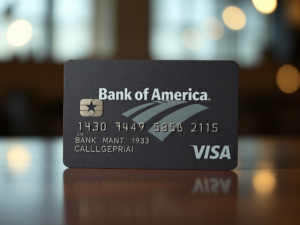Credit history is an important part of our financial health. A high credit score can open many doors. These doors remain closed to those with bad or even average credit scores. This is true whether you are taking out a loan, trying to rent an apartment, or applying for a job. So lets find out The Best Credit Cards for People without Credit History.
It also can be difficult to secure a credit card if you have never had any credit history at all. But, there are multiple credit cards for people to setup and mend their own. In this post, we will go through the top credit cards for no credit history. We will explore their perks and benefits. Additionally, we will provide tips on how you can manage them.

CREDIT HISTORY AND WHY IT MATTERS
However, before exploring the way out, it is important to understand credit history. You should know why it matters. A history of your borrowing and repayment is obviously reflected on your credit file It includes details like:
Payment history — Paying your bills on time can give your score a big helping hand. Missing payments could hold it back.
Credit utilization — the amount of credit you are using relative to your total available credit.
Duration of credit history: This generally has a positive impact on your score.
Credit mix: Having both installment loans and revolving credit helps.
Recent Inquiries: Every time you apply for credit, a Hard Inquiry is also recorded and can drop your score temporarily.
If you’re a beginner, building up your credit history is key. This is because a good score can qualify you for lower interest rates, higher credit limits and more financial options.
Best Credit Card for Beginners Key Features
If you are new to credit, keep these tips in mind as you search for a credit card:
No Annual Fee: Nearly all starter credit cards come with no annual fee. This means it is cheaper over the years.
Low Interest Rates — While you are working toward building credit, it is beneficial to avoid higher rates. This is important in case you get a balance.
Rewards Programs: Many cards will give you rewards or cash back for every purchase made, rewarding good behavior.
Credit Reporting: Confirm the card issuer reports to all three major credit bureaus. They include Equifax, Experian, and TransUnion. This can help boost your score.
Customer Assistance: With an app, you can manage your spending and also make payments.
The Best Credit Cards for People without Credit History
Let us look at some of the best credit cards for no credit history
1. Discover it® Secured
Bottom line: If you’re new to credit, the Discover it® Secured Credit Card is a top contender. It comes with a security deposit, but it also has all of the bells and whistles you’d ever want.
Annual Fee: $0
Rewards: 2% cash back at gas stations and restaurants (on up to $1,000 in combined purchases each quarter) and 1% on all other purchases
Credit Bureau Reporting: All three bureaus
Security Deposit: $200 (minimum deposit limit) this is also your credit limit.
Why We Like This Card: The cash back rewards are a great feature for beginners. The possibility of receiving a credit limit increase after seven months is unbeatable.
2. Cash One Platinum Credit card
Bottom line: If you’re new to credit, the Capital One Platinum Credit Card is an easy pick. The card was created to help you develop credit without charging high fees.
Annual Fee: $0
Credit Limit: Your initial limit may be low, but with responsible use you can increase your limit over time.
Credit Reporting: Reports to all three major credit bureaus.
Why It’s Great: This card has no annual fee. It also has no add-on fees. There are credit line possibilities for credit building with minimal costs!
3. Petal Visa® Credit Card
Overview: Petal 1 is a distinct credit card. It offers a unique data approach to underwriting an applicant. This may particularly appeal to those with no prior credit history or experience.
Annual Fee: $0 *
Rewards: Get 1% cashback instantly and up to 1.5% back after you’ve paid on time for at least six months.
Credit Reporting: Reports to all main credit bureaus.
Why It’s Great: This card considers income and banking records for granting credit, making it easier for persons with minimal lending history.
4. OpenSky® Secured Visa® Credit Card
It is an excellent option because it allows you to establish credit with a secured deposit without the requirement of a credit check.
Annual Fee: $35 *
Credit Limit: Determined based on your security deposit * Credit Reporting: Reports to all three major credit bureaus.
Why It’s Great: There is no credit check, and the card enables you to develop credit responsibly.
Chime Credit Builder Visa® Secured Card
Overview: The following Chime Credit Builder card is linked to your Chime spending account is distinctive because it allows you to build credit without running the risk of over-expenditure.
Annual Fee: $0
Security Deposit: No deposit is necessary, and you can utilize the cash you spent uploading to your Chime account as your credit limit.
Credit Reporting: Reports to all three major credit bureaus.
Why It’s Great: This card is non-risky as long as you utilize the Cash Guard feature, and all fees are non-existent.
How to Establish Credit Wisely
Pay on Time- Obviously the most important component of your credit score is your payment history (YourPast). You can set reminders to make sure that you pay your bills on time, or better yet automate the payments.
To secure low rates, carry only 30% or less of your available credit. This is called a credit utilization ratio and it literally dictates your score.
- Use Your Card: Place your card in a pair of groceries from time to time and pay them the same way as well. Using it regularly helps contribute toward a more positive credit history.
- Don’t apply for multiple cards at once — each application can result in at least one hard inquiry that could temporarily lower your score.
- THE BOTTOM LINE Keep an eye on your credit:Free credit monitoring tools can allow you to watch for inaccuracies and monitor your progress.
- If this is impossible, then you should consider becoming an authorized user with someone else (like a family member or friend) who does have good credit. That can offer you a way to establish credit without the risk of applying for one more account.
Conclusion
This can seem intimidating, especially when you are not doing credit for the first time at all. Yet, there are credit cards designed specifically for people who need to rebuild or establish their credit. Whether it’s through secured options, such as the Discover it® Secured Credit Card, or some more novel solutions like the Chime Credit Builder card, you have plenty to choose from. You can share you list of The Best Credit Cards for People without Credit History.


